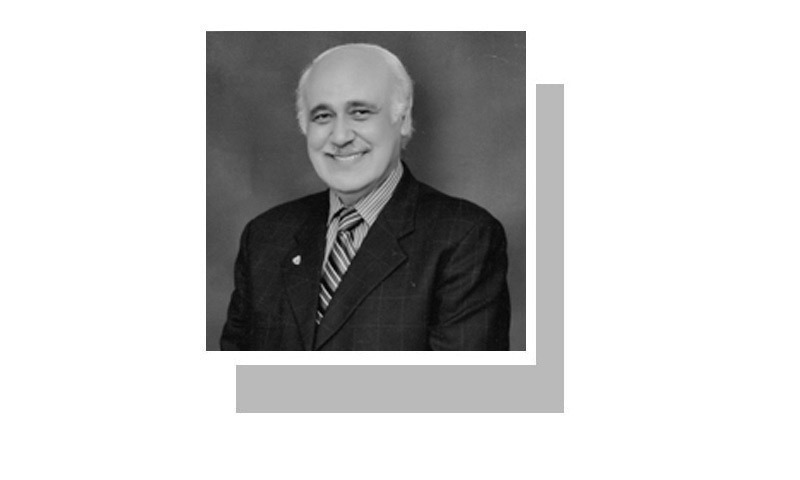THE US is dying slowly, poisoned by its own hubris. No nation in recent history achieved the pre-eminence the US enjoyed throughout the 20th century. From across the Atlantic, it intervened in two European wars and emerged in 1945 with a primacy over both the victors and the vanquished.
Since then, the US has been the world’s policeman, the champion of democracy, the guardian of the free world. It has also been in a state of ‘permanent war’ across the globe — in Korea, Vietnam, Cuba, Grenada, Panama, Iraq, Libya, Kenya, Somalia, Syria, Yemen and, since 2001, continuously in Afghanistan.
Every American president since Dwight Eisenhower has wanted to heed his valedictory warning: “We must guard against the acquisition of unwarranted influence, whether sought or unsought, by the military-industrial complex. The potential for the disastrous rise of misplaced power exists and will persist.” Yet each successive president has seen his pen transform into a pistol.
“The manufacturing of weapons systems and the waging of war are the chief activities of the state today,” Clive Hedges has written in his book America: The Farewell Tour (2018). “They are no longer one among other means of advancing the national interest, but have become the sole national interest.”
Where do we stand in this spectrum of despair?
Hedges predicts the collapse of the US empire — one that has moved from being “an empire of production to an empire of consumption”. It still floats now, but damaged by the Covid-19 iceberg. He sees no future for US’s “excess of democracy”. Democracy will become, as Eisenhower feared, “the insolvent phantom of tomorrow”.
Instead, Hedges predicts that global capitalism will be superseded by China’s totalitarian capitalism. This view is paralleled by a younger journalist Ronan Farrow in his book War on Peace: The End of Diplomacy and the Decline of American Influence (2018).
Farrow’s assignment with the late Richard Holbrooke (Barack Obama’s special envoy for Afghanistan and Pakistan) exposed him to the danger of ‘mil-think’ — military-driven logic that masquerades as US foreign policy. Benefiting from interviews with every US secretary of state since and including Henry Kissinger, Farrow detected the palpable “militarization of foreign policy”. He regretted “the dominance of generals in Obama’s Afghanistan review”, which under Trump, “was expanded almost to the point of parody”.
The presidential elections are due in November. Donald Trump may or may not be elected. In a two-party race, there is no space for shades between Republican red and Democratic blue. Some Democrats still rue the day when in the 2016 elections, they preferred Trump as an opposing candidate because he was so obviously beatable.
Trump belongs to an elite of elected authoritarian leaders: Russia’s Putin, China’s Xi Jinping, North Korea’s Kim Jong-un, Turkey’s Erdogan, Britain’s Boris Johnson, India’s Narendra Modi. Without admitting it, they subscribe to Adolf Hitler’s precepts of governance: “Avoid abstract ideas — appeal to the emotions; constantly repeat just a few ideas; use stereotyped phrases; give only one side of the argument; continuously criticize your opponents; and pick out one special ‘enemy’ for special vilification.” Adapting Hedges’ words to their situation, “they create national myths of identity out of a composite of historical events and fantasy. They ignore unpleasant facts that intrude on self-glorification”.
Where do we as a nation stand in this darkening spectrum of despair? Have we become, to quote Hedges again, “serfs ruled by obscenely rich, omnipotent masters who loot [the treasury], pay little or no taxes and have perverted the judiciary, the media and the legislative branches of government to strip us of civil liberties and give them the freedom to commit financial fraud and theft”? That sounds familiar.
Elected authoritarianism, like polio, has not been entirely eradicated from Pakistan’s body politic. Ever since the time of Ayub Khan, we have indulged in “that little moment of romance when a society on the brink of change falls temporarily in love with itself”, only to be disenchanted by the reality of performance.
Two years have passed since the promise of change made by the present PTI coalition government. Social media is already preparing a charge sheet. Will that prove to be a political purgative, or just another exercise in ‘boutique activism’?
And how do friends view our present leadership? We know from WikiLeaks that in July 2009, Abu Dhabi Crown Prince Mohammed bin Zayed described our former president Asif Zardari as “dirty but not dangerous” and former prime minister Nawaz Sharif as “dangerous but not dirty”. Does he see our prime minister as neither one nor the other?
Every government today, after reading these books by Hedges and Farrow, should read Dostoevsky’s novel The Brothers Karamazov. In it, one character asks how he can win salvation. The other replies: “Above all else, never lie to yourself.” Or to the electorate.
The writer is an author.
Published in Dawn, August 27th, 2020











































